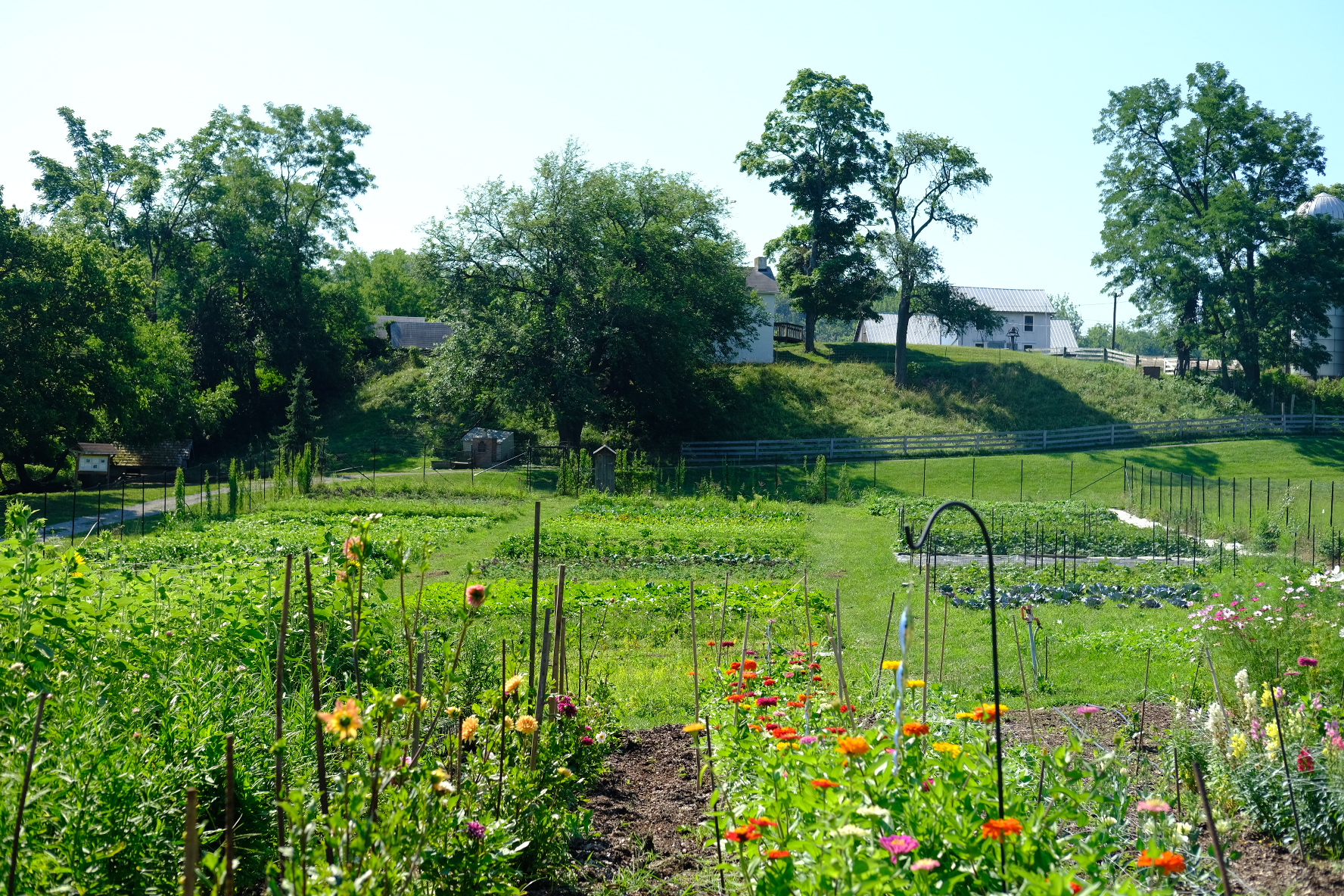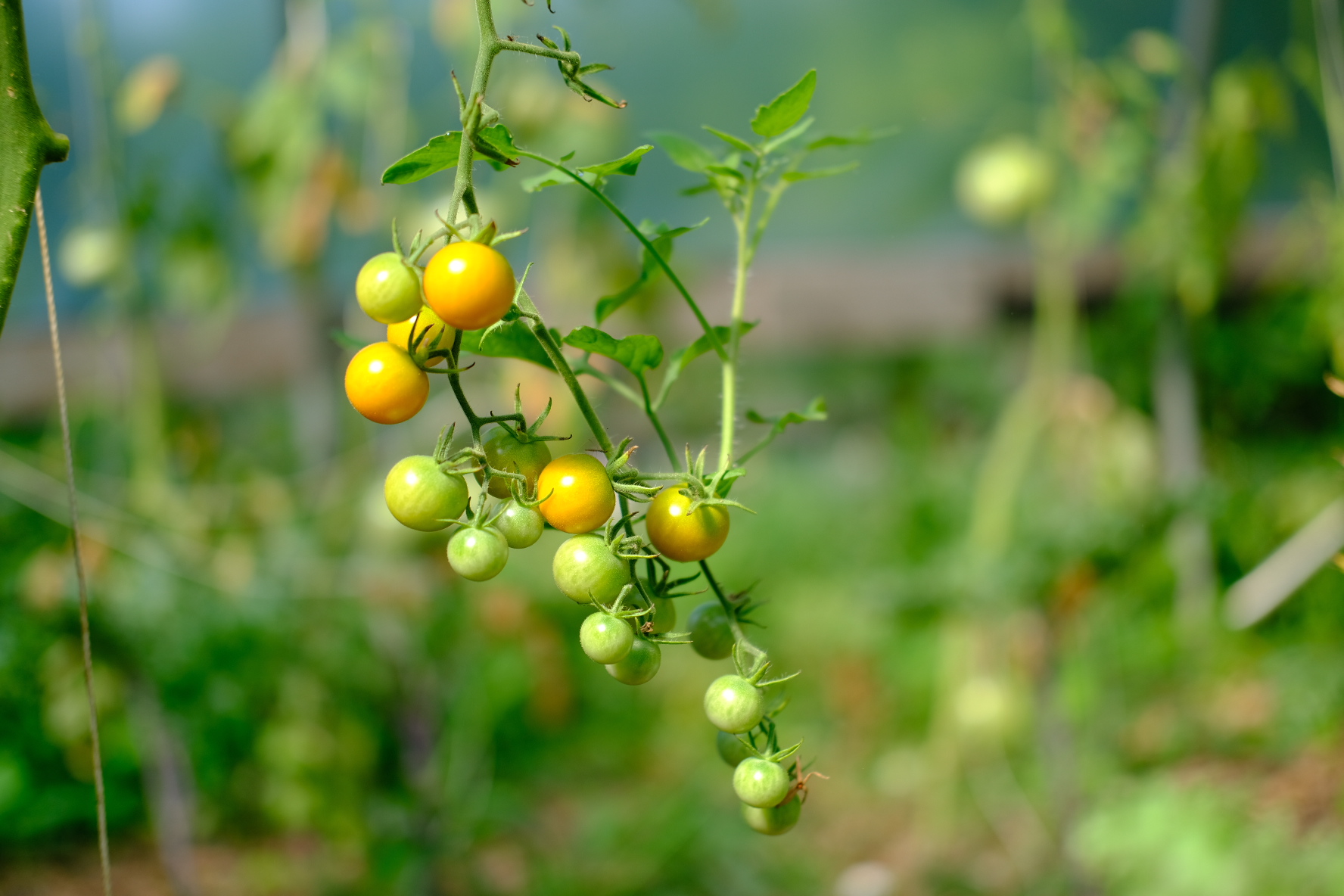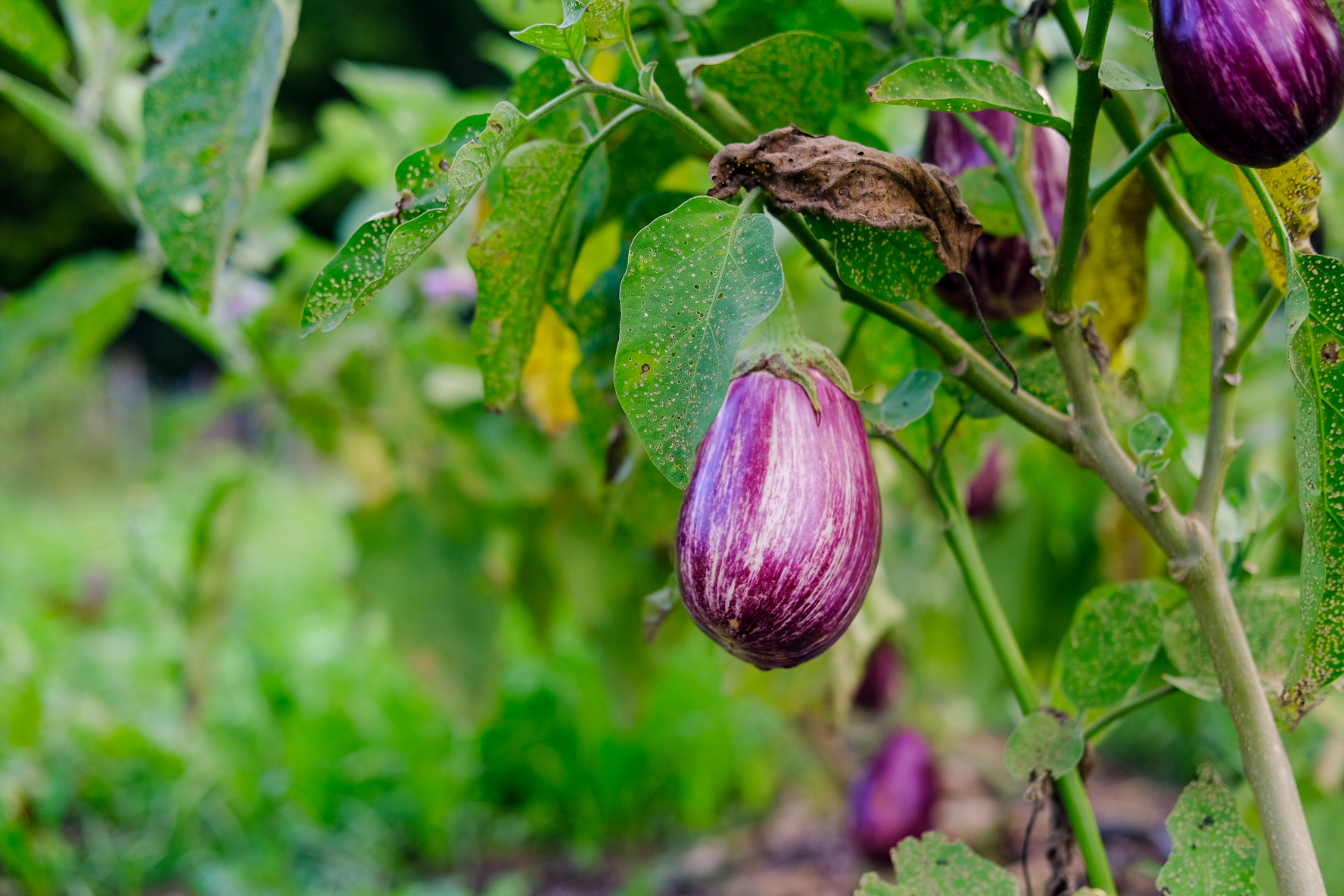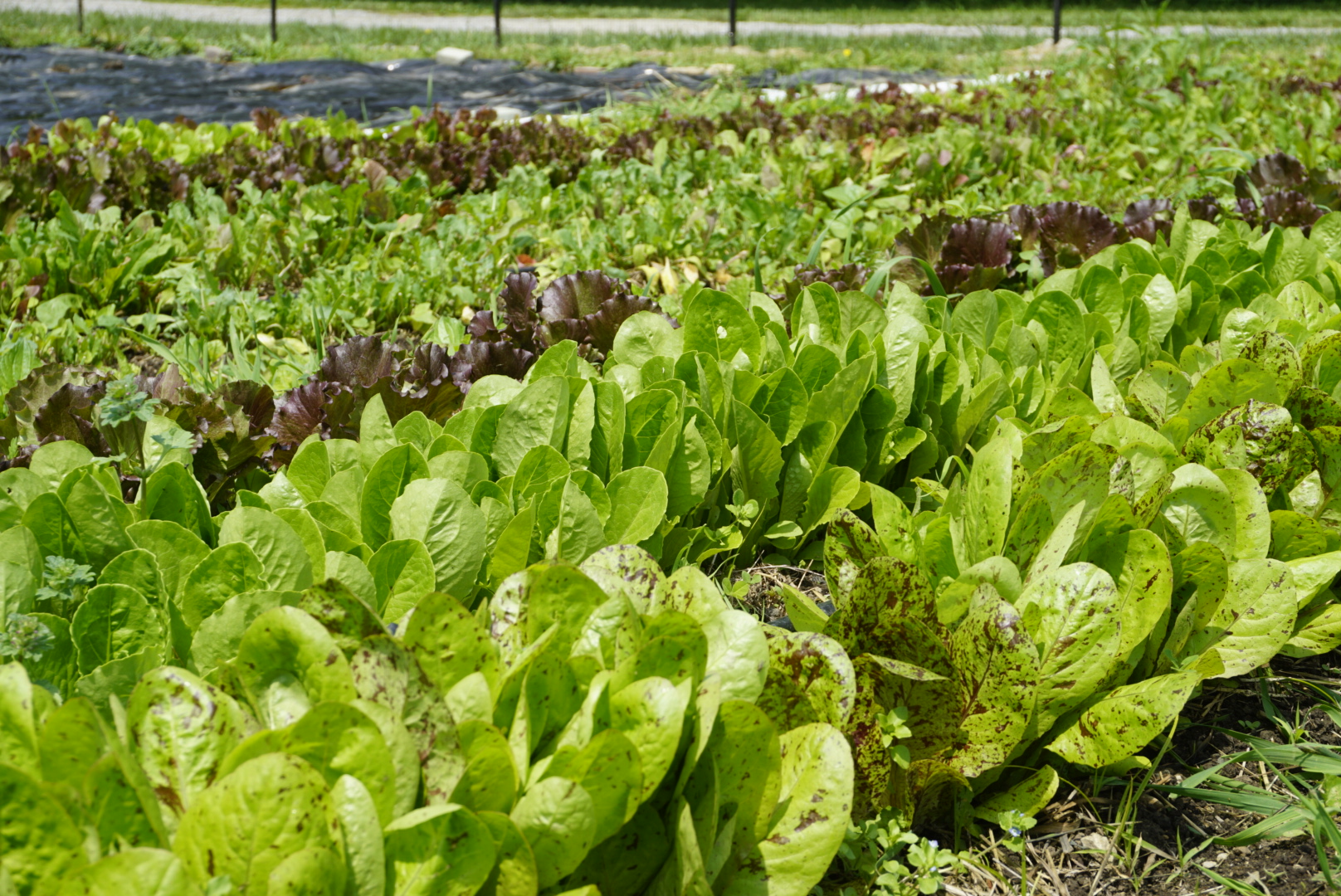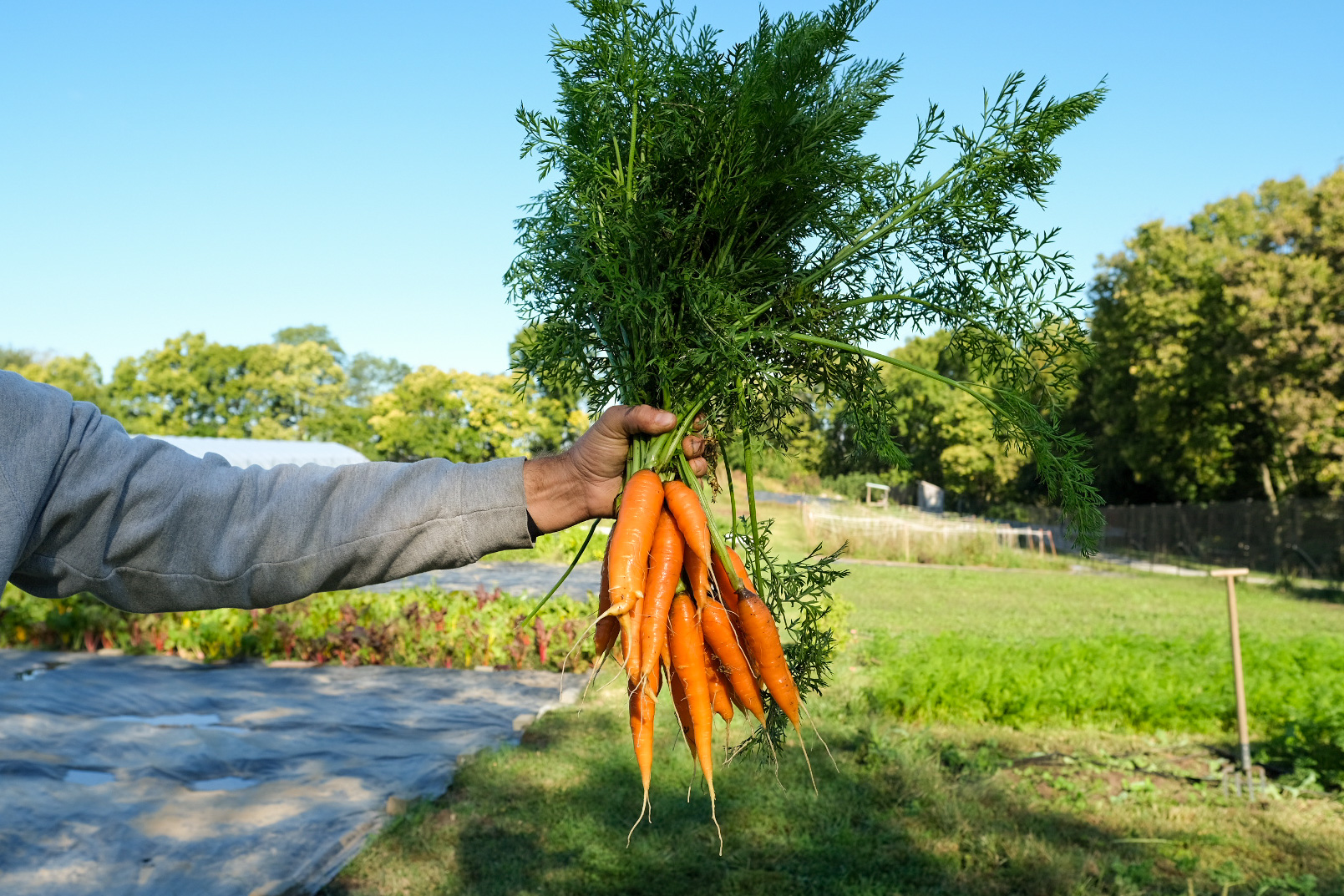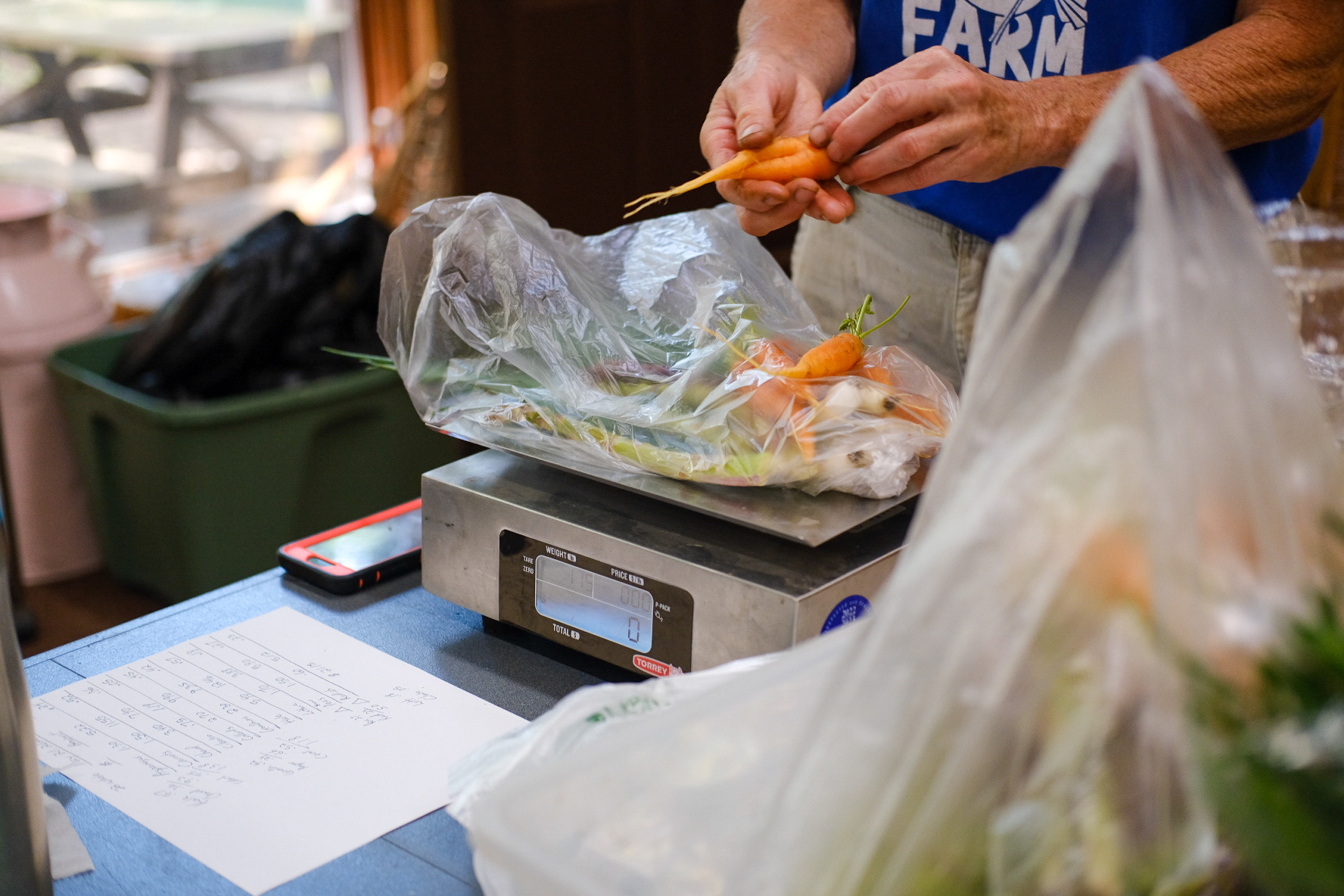COMMUNITY SUPPORTED AGRICULTURE
PRODUCE
Produce. Just saying the word conjures up images of cool cucumbers, juicy tomatoes and crisp greens. Food for the mind. Food for the body. Food for the spirit.
Gorman Heritage Farm offers a wide variety of seasonal produce – some as commonplace as potatoes, some as exotic as Egyptian Walking Onions and German Red Garlic. All invite creative cooking, the excitement of “buying at the farm” and the hope of a healthier life. Our produce is available at our retail store, or by subscription through our Community Supported Agriculture (CSA) program.
Gorman Heritage Farm has not been certified as an organic grower, but we do follow the philosophy of healthy and sustainable use of our soil for maximum harvest. By using natural soil amendments such as compost and cover crops, we enjoy a healthy harvest without synthetic additives.
COMMUNITY SUPPORTED AGRICULTURE (CSA)
A CSA is a way for a consumer to buy local, seasonal, sustainably-grown food directly from the farmer. Members receive a “share” of the garden’s in-season produce every week, for 24 weeks, in exchange for their upfront financial support.
Cost: $650 –or– $500 plus 30 hours of volunteer time. We charge everyone the full amount upfront and refund $150 at the end of the season if 30 volunteer hours have been completed. We will refund $5.00 per hour of volunteer work up to 30 hours.
Duration: 24 weeks. Pick-up: Pick up your CSA at our Interpretive Center located at 10052 Reading Road. We offer either Wednesday (4-6pm) or Saturday (10am-12pm) pick-up options. You will be either a “Wednesday CSA” or “Saturday CSA” and that will be your established pickup day throughout the entire season.
Sign-up: The previous year’s CSA members have first choice for the next year’s CSA. We then offer available shares to those at the top of our historically robust waiting list, beginning in February. If you would like to sign up for the CSA, contact Jason Kamp to be added to the waiting list. Note: due to limited turnover and size of waiting list, invitations are scarce and often a year delayed.
Volunteering: We are a non-profit organization, and we rely heavily on volunteers. In fact, our volunteers logged roughly 35,000 hours this past year doing work around the farm. As for our vegetable production, we literally could not do it without our volunteers. The above volunteer discount (rebate) is available to CSA members who log hours in any volunteer activity directly related to the successful administration of the CSA, from harvest to bagging, and including any hours logged during the Sunflower Festival!
Amount of food: Generally, the amount of food is good for a family of two. This depends, of course, on how many meals are prepared at home. Our goal is to include about $19-24 worth of freshly harvested produce in each weekly share. Due to the unpredictable nature of gardening and the weather, we do not always meet that goal, especially early in the season before the growing season is in full swing, but we try to make up the difference throughout the season.
Foods grown:
Spring garden – a variety of lettuces and leafy greens, arugula, carrots, a variety of kale, radishes, beets, cabbage, Swiss chard, onions, snow peas, cilantro, garlic scapes, and a limited amount of asparagus (early season only).
Summer garden – a variety of tomatoes, radishes, green beans, wax beans, edamame (soy beans), beets, carrots, cucumbers, eggplant, garlic, sweet peppers, potatoes, summer squash, basil
Fall garden – sweet potatoes, winter squash, figs, leeks, potatoes, garlic, lettuces, arugula, kale, Swiss chard, green onions, snow peas, cabbage, carrots, and radishes. Most seeds used are either organic or heirloom unless otherwise noted.
Questions: If you have any questions or would like to know if shares are available, please email our Director of Garden Programs, Jason Kamp
For those interested in flowers, we have a Cutting Garden Subscription: $95 for 10 cuttings of 24 stems and $60 for five cuttings of 24 stems. Sunflowers count as two stems. Only 1 visit is allowed per week to maintain the blooms in our garden. Unused visits do not roll over to the following year.


